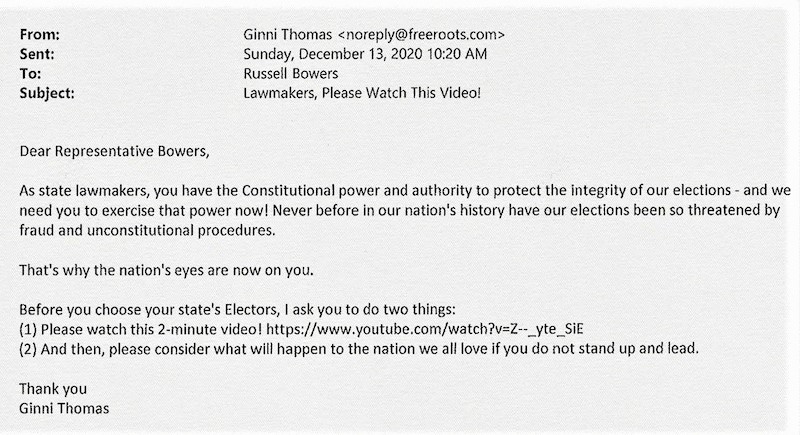
My wife is the president of a local non-profit organization. As such I attend many of the functions she takes part in. Frequently, I am privy to conversations by board members and others regarding a variety of matters, and sometimes I give my wife unsolicited advice.
Several years ago, a potential donor was being courted by the organization. However, this individual came with considerable baggage. They had been convicted of fraud and while they paid the fine and were barred by the court from serving on any board in the future, I made clear my views to my wife that the donation, if offered, should be declined. While I knew full well that she would make her own decisions regardless of my opinions, I found this individual’s involvement distasteful and wondered what kind of message it would send to other potential donors and patrons of the organization who felt the same as I?
Unfortunately, I expressed my opinion to a couple of individuals close to the organization and my wife was rightfully angered at sharing my opinions outside the home and dutifully reprimanded me.
At the end of the day, the donation never materialized.
There’s a general rule in cases such as this: Caesar’s wife must be above suspicion. A public figure cannot be placed in a position of dishonor by their spouse. (In this case, I’m the wife.) Because of her reputation in the organization and the community, even the appearance of influence could reflect badly on her reputation causing many to possibly question her decision-making.
Supreme Court Justice Clarence Thomas is caught in a similar matter, but the stakes are considerably higher.
Thomas’s wife, “Ginni,” held the opinion that the 2020 election had been “stolen” from former president Donald Trump. That’s fine. However, she willfully inserted herself into the controversy by sharing her opinion with White House chief of staff Mark Meadows and then contacted 29 Arizona state lawmakers, pressing them to overturn the will of Arizona voters falsely claiming that the election was fraudulent.
As reported by journalists Bob Woodward and Bob Costas, “Thomas shared with Meadows conspiracy theories that Trump had a secret plan to expose election fraud (‘I hope this is true,’ [Thomas’s text message reads.]) and to send its perpetrators to Guantanamo Bay, urged that Trump should ‘not concede’ because ‘it takes time for the army who is gathering for his back,’ said the ‘Left’ was ‘attempting the greatest Heist of our History,’ championed the ludicrous claims of Trump’s lawyer Sidney Powell (‘Sounds like Sidney and her team are getting inundated with evidence of fraud,’ [Thomas wrote]), complained about being ‘disgusted’ with Vice President Mike Pence for approving the results, and declared Biden’s win meant ‘the end of Liberty.’”
In her testimony before the January 6 House committee, Thomas essentially said that she and her husband don’t discuss such issues at home, and that he is his own man, untouched by influence.
In my experience, unless infidelity or other such issues stand between them, husbands and wives always share opinions. To believe otherwise is a big stretch. And on significant opinions—particularly those questioning the integrity of a national election—it’s even more of a stretch that Ginni Thomas and her husband wouldn’t discuss the matter privately.
But let’s take Thomas’s word on that. There’s a larger issue at stake for her husband: his wife’s direct involvement in lobbying 29 Arizona officials to overturn the voting process which is supposed to remain untainted by influence. Bias could easily be perceived if Justice Thomas is part of any case that comes before the court concerning Donald Trump or Arizona’s voting practices.
“[Ginni Thomas’s email] message,” The Washington Post reported, “just days after media organizations called the race for Biden in Arizona and nationwide, urged lawmakers to ‘stand strong in the face of political and media pressure’ and claimed that the responsibility to choose electors was ‘yours and yours alone.’ They had ‘power to fight back against fraud’ and ‘ensure that a clean slate of Electors is chosen,’ the email said.”
Additionally, she suggested that lawmakers utilize a dubious legal mechanism and linked a YouTube video for Republican lawmakers to view!
This would be akin to my actively lobbying board members to refuse a potential donor based on my opinion linking numerous news stories proving the unworthiness of the donor.
By her actions, Ginni Thomas has now brought serious questions to the decision-making of her husband. To believe otherwise is naïve.
Justice Thomas has a big ethical problem, and just because the Supreme Court does not have a code of ethics, does not make it go away.
Given Trump’s go-to strategy of challenging every court decision he faces, Thomas’s decision could prove more than a little consequential. However, Thomas need not consult some past legal precedent on recusal. He only has to go to one of his predecessors for advice.
“There is a big difference between what you have a right to do and what is right to do,” former Supreme Court Justice Potter Stewart said.
For the sake of his integrity, that of the court and the public, Thomas needs to follow Stewart’s advice and recuse himself from any case involving the former president. Will he remains to be seen.
By the way, Stewart was a Republican.
Comments










